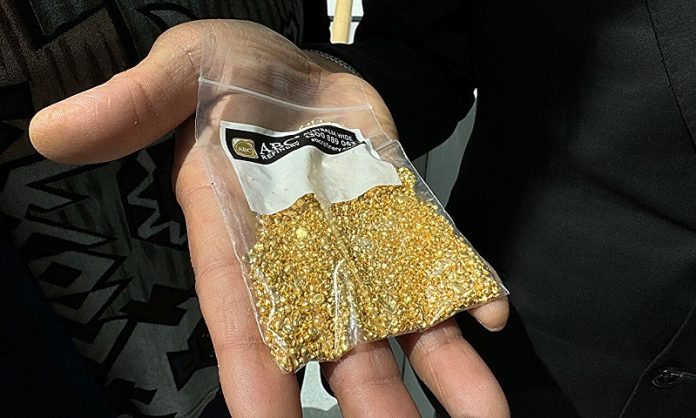
Gold is shining in a surprising new way—not as jewelry, but as a potential cancer treatment.
Researchers from RMIT University in Australia and the Indian Institute of Chemical Technology have developed a gold-based drug that could outperform traditional chemotherapy drugs in fighting cancer.
Their findings, published in the European Journal of Medicinal Chemistry, reveal that this new gold compound is not only more effective but also less toxic than the platinum-based drug cisplatin, which is commonly used in chemotherapy.
The study shows that the gold compound slowed tumor growth in mice by 82%, compared to cisplatin’s 29%.
In lab tests, it was 27 times more effective against cervical cancer cells, 3.5 times more potent against prostate cancer cells, and 7.5 times stronger against fibrosarcoma cells.
Distinguished Professor Suresh Bhargava, project leader and head of RMIT’s Centre for Advanced Materials and Industrial Chemistry, said this discovery could lead to new and better cancer treatments.
“These compounds target cancer cells more selectively, reducing the harmful side effects seen with current treatments,” Bhargava explained. While human trials are still far off, the results offer hope for safer and more effective therapies.
The gold compound, now protected by a U.S. patent, is ready for further development.
What makes this gold special?
Unlike regular gold, which is famous for its stability, the gold used in this drug is a reactive form called Gold(I). This version is designed to interact with specific enzymes abundant in cancer cells. By targeting an enzyme called thioredoxin reductase, the compound disrupts the cancer cells’ ability to grow and resist treatment.
This targeted approach not only stops cancer cells from multiplying but also prevents them from developing resistance to the drug. This is a major advantage over cisplatin, which can harm healthy cells and cause severe side effects.
The gold compound has another powerful weapon: it prevents the growth of new blood vessels that tumors need to survive, a process known as anti-angiogenesis. This dual-action capability—blocking both cancer cell growth and blood vessel formation—makes the drug particularly effective.
In zebrafish studies, the compound stopped blood vessel formation and showed strong results against ovarian cancer cells, which are known to resist cisplatin. “This is an important step toward addressing tough-to-treat cancers and preventing recurrence,” said Distinguished Professor Magdalena Plebanski, co-leader of the study.
The research team, led by Bhargava and Plebanski, worked closely with scientists from the Indian Institute of Chemical Technology. Dr. Srinivasa Reddy, a graduate of RMIT’s joint Ph.D. program with IICT, played a key role in the project.
Six Ph.D. students from around the world, including Australia, India, Germany, Bangladesh, and Mexico, have joined the team, reflecting the global nature of this effort.
Gold’s use in medicine isn’t new. In Indian Ayurvedic treatments, gold has long been valued for its healing properties. Today, modern science is rediscovering its potential. For example, the anti-arthritis drug auranofin, which contains gold, is showing promise in clinical trials for cancer treatment.
“Gold has been used for thousands of years in traditional medicine, but our work is providing the scientific evidence to back its potential while creating new molecules that amplify its healing properties,” Bhargava said.
The research has also caught the attention of the gold industry. Australian company ABC Bullion has donated 250 grams of pure gold annually to support the work. Representatives from Agnico Eagle Mines, a leading Canadian gold producer, have visited RMIT to explore collaborations.
“These endorsements highlight the significance of our work,” Bhargava said. “This isn’t just a scientific breakthrough—it’s a step toward solving a global health challenge.”
The gold-based drug offers hope for more targeted and less harmful cancer treatments. While human trials are still needed, the progress so far is encouraging. The team is committed to advancing this research and developing new therapies to improve outcomes for cancer patients.
With gold proving to be more than just a luxury metal, its role in medicine could transform cancer treatment, offering a brighter future for patients worldwide.
If you care about cancer, please read studies about how to fight cancer with these anti-cancer superfoods, and a berry that can prevent cancer, diabetes and obesity.
For more health information, please see recent studies about how to harness the power of anti-cancer foods and supplements, and cancer-fighting foods and recipes.
Source: RMIT University.



